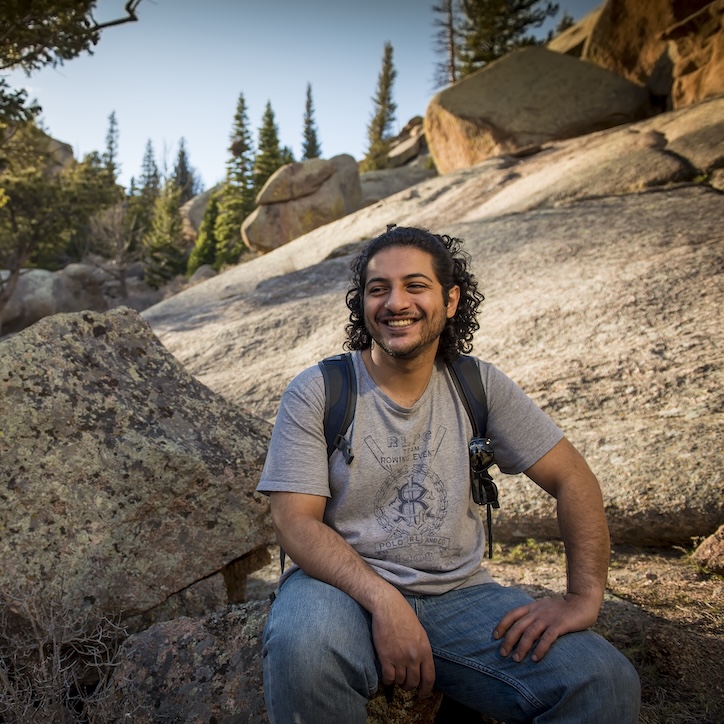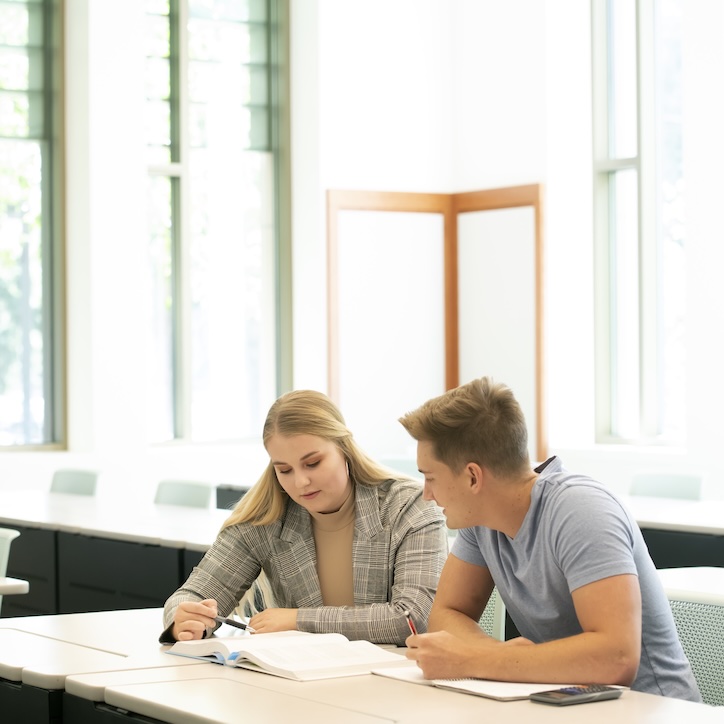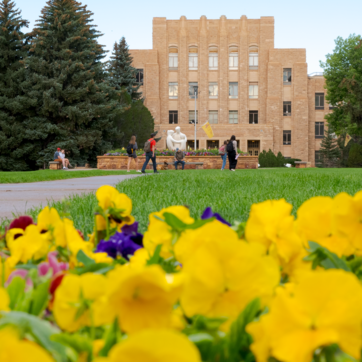Travel, Visa, and Enrollment Information
Current UW Students:
- Domestic Travel within the US
- International Travel Risks and Information
- Applying for a US Visa
- UW Enrollment if Student Cannot Return to the US
Current and Potential Faculty and Staff:

Students who will travel within the US are not required to have a travel signature on their I-20/DS-2019. They should be aware of important document and travel information.
There are no limitations on travel within the US at this time. Students should review the information below, make sure they carry all of their documents with them at all times, and be aware of risks for the areas that they will visit.
Generally, immigration documents are not checked within the US; however, in the current climate international students should be prepared to present their immigration status documents at any time. Some law enforcement agencies check status for all contacts, and some do not. The UW Police, Laramie Police, and Albany County Sheriffs do not check immigration status for regular traffic stops, etc. Status documents may be required if arrested or charged with certain more serious crimes. Students should be prepared.
When in Laramie: Students should carry original or copy of their passport, visa, I-20/DS-2019 printout, most recent I-94 (printed from https://i94.cbp.dhs.gov/home).
When traveling outside of Laramie: Students should carry ORIGINAL passport, visa, I-20/DS-2019 printout, most recent I-94 (printed from https://i94.cbp.dhs.gov/home), UW transcript.
- NOTE: I-94 is NOT your Travel History. I-94 gives information about your most recent entry to the US and is your official proof of your current status in the US. The Travel History is a list of your previous entries and departures from the US.
Traveling Near the Northern or Southern US Border: US Immigration and Customs Enforcement (ICE) agents are allowed to check immigration documents at any time. Within 100 miles of the northern and southern US border international students should expect to have their immigration documents checked. There are actual CBP ports INSIDE the US near the borders that will check documents. Students traveling to southern California, Arizona, New Mexico, Texas, or northern US status MUST carry their ORIGINAL documents with them AT ALL TIMES! Be incredibly cautious traveling near the borders. Make sure that you have a “notification buddy” that knows your travel/visit plans and check in with them often. It is a good idea for them to have a copy of your immigration documents in case you lose them, or in case you are detained and they need to contact ISS on your behalf.
Lost/Stolen Passport or Other Documents: Notify ISS IMMEDIATELY if you lose your passport/visa or I-20/DS-2019. You must also file a police report to report the lost/stolen documents. This must be done with the police where your documents were lost/stolen. You should also contact your embassy in the US if your passport is lost/stolen so that they can begin the process to issue a new passport for you.

Students are encouraged to consider all risks associated with the travel challenges that could arise, including potential changes to US travel and entry information by the new US federal administration, before traveling internationally.
Students and scholars should also check the status of their visas prior to travel outside the US at: https://ceac.state.gov/ceacstattracker/status.aspx
Any current student who plans to travel outside of the US must complete the ISS Travel Notification Survey at least one week prior to leaving the US. If you also need an updated travel signature on your I-20 or DS-2019, you will be able to request one in that survey.
ISS is not telling students not to travel internationally at this time. Students are encouraged to consider all risks associated with the travel challenges that could arise, including potential changes to US travel and entry information by the new US federal administration, before traveling internationally. Students should review the risks presented below and make their own decision about travel. Students should consider the worst case - If you travel outside of the US and are not allowed to return (possible travel bans, increased scrutiny, revoked visas, terminated SEVIS records, etc) is that ok with you? If you choose to travel, make sure that you make a contingency plan for your car, apartment, pets, F2/J2 family members (who would have to leave the US immediately if you are not allowed to return).
Any student who will travel outside of the US should return to the US before their visa expires if possible. Applying for a new visa, or traveling close to the visa expiration date, can be risky due to visa appointment delays and updated visa applicant scrutiny, as well as general travel risks. Students should carefully review the travel and visa FAQs on this page before deciding to travel if they have to apply for a new visa.
- Visa revocations - In April 2025 many students had their student visas revoked by the US Department of State. If your visa is revoked it means that the visa in your passport would not be valid for US entry and you will have to apply for a new visa before you can enter the US. If your visa has been revoked you may have received an email at the account used for your most recent visa application. You can also check your visa status on the S. Consular Electronic Application Center website. You can also check your “My USCIS” account if you have one. If you choose to travel outside of the US and then find out that your visa is revoked, you may be delayed from returning to your study on time, or could be denied a visa and not be able to return to study at UW. Make plans ahead of time! (see more info in the section “Applying for a US Visa” below)
- Increased scrutiny of all entrants to the US - All who attempt to enter the US will be subject to increased scrutiny by Customs and Border Protection (CBP) agents. We anticipate more students being sent to secondary inspection. Allow extra time at your entry point in case you are delayed getting through CBP check.
- Background checks - Background checks of all entrants have always happened. It is anticipated that there could be increased scrutiny of any activity found on your background check, even minor tickets.
- Search of phones and electronic devices - CBP can now search all electronic devices. This means that the CBP agent can look at your phone, laptop, etc. and all things on it including photos, emails, texts, and all of your SOCIAL MEDIA apps. You cannot be required to log into your social media on a computer, but you can be required to unlock your phone/devices to allow the search.
- Increased check of all documents required for entry (see list that you receive via email when you submitted your Travel Notification/Signature Request survey or below) - You MUST have an I-20 or DS-2019 with a valid travel signature and all other documents or you will likely be turned away at the border.
- Try to fly directly to Denver International Airport. DIA is more used to seeing UW documents and has traditionally been helpful for UW students. Try to arrive to the US on a weekday, during work hours, in case you/CBP need to contact ISS.
- Carry the ISS phone number (307-766-5193) and the UW Police Department phone number
(307-766-5179) with you in case you or CBP need to contact us.
Have a “notification buddy” that can keep track of each step of your travel. Text/call them when you arrive at the airport, when you get through airport security, when you board your flight, when you land (before you get off the plane), and when you get through customs check/security. If you are detained they will be the first to know and can contact ISS or your family to begin any process for locating your or finding out what the delay is. It is a good idea for you “buddy” to have a copy of your documents (passport, visa, I-20/DS-2019, UW transcript, detailed itinerary, and ISS contact information.) - Spouses and children on the F-2 visa are dependents of the F-1 visa applicant/holder. If the F-1 visa holder travels outside of the US and is not allowed to return, their F-2 dependents must depart the US immediately.
Required:
- Passport
- Valid US visa (see “What documents do I need to apply for a new visa” below)
I-20/DS-2019 signed for travel by ISS
Recommended:
- F & J Students - Transcript showing enrollment history and full-time registration for the next semester if traveling over the winter or summer break
- Proof of funding (bank documents, department letter for grad assistantships, scholarship letters, etc.)
- ISS and UWPD phone numbers
- If on OPT - EAD and employment letter including salary

The US Department of State allows each individual consulate to determine their hours of operation and closures depending on local cultures, holidays, and situations. Consulates may close or limit services at-will and may limit the type of visa applications they accept, and who is allowed to apply at that specific consulate.
The US consular officers are now required to check all SOCIAL MEDIA accounts, in addition to their criminal background check, of visa applicants prior to their visa appointment. Be cognizant of what you share on social media, what your friends and family tag you in, etc. There are currently no defined specifics for what type of social media participation might prompt a visa denial.
Visa Interview Waivers Limited: Criteria for visa interview waivers was updated in February 2025 and limits the type of applicant who might qualify for a visa interview waiver. This is anticipated to cause longer visa wait times and could cause students to be late to return to classes. Remember that UW generally does not issue excused absences for students who are delayed because of a visa delay. Contact the consulate or look on their website for information about interview waiver eligibility.
Many consulates are seeing large delays for visa appointments. Some consulates might offer expedited or emergency appointments to students who are approaching the start date of their academic program. Students should check the website of the specific consulate they will apply at to see what their rules for emergency appointments are. Those who are able to apply for an expedited or emergency appointment should print the Expedited Appointment letter from ISS to present to the US consulate to schedule or attend their emergency appointment if required. Remember, the program start date on your I-20 or DS-2019 must be accurate for the semester in which you intend to begin study in the US.
Students may be able to apply for a visa in a third country if the US consulate allows it, but information that we have received is that most countries are not allowing visa applications from third-country nationals at this time.
Many students are experiencing long wait times for their student visa appointment. Below is a list of “tips” that ISS advises might help a student get an earlier appointment. These “tips” are not official guidance from the US Department of State and might not work for all students. These are things that other students have tried/done to get an earlier visa appointment. Student should consider possible delays before choosing to travel outside of the US if they must apply for a new visa.
- Make your visa appointment for the earliest date possible, even if this is far in the future. Most other actions cannot be taken if you do not already have a visa appointment on record with the US consulate.
- Check the consulate website to see if they allow expedited or emergency appointments and if your situation qualifies. Not all consulates are giving expedited or emergency appointments and some of them are limited to legitimate life/death emergencies. If you qualify, ask for an expedited or emergency appointment. If they need a support letter from UW download and submit the Expedited Appointment letter to submit with your request.
- Continue to check the online appointment system every day! If someone cancels their appointment you might be able to move your appointment to an earlier date. Many students have had success doing this.
- Report any delay with your visa appointment and estimated arrival date to your academic department/advisor and to ISS. In some cases, graduate students (master’s and doctoral) may be able to begin study online due to visa delays and then transition to on campus classes when they arrive in the US or arrive a bit late depending on their enrollment for the semester. Undergraduate students are usually not able to arrive late, and excused absences will NOT be given to students due to visa delays. Students should strongly consider this if they must apply for a new visa.
- Passport
- I-20/DS-2019 signed for travel by ISS
- Good standing letter from ISS (will be issued when we signed your I-20/DS-2019)
- F & J Students – Transcript showing your enrollment history and full-time enrollment for the next semester if traveling over the winter or summer break
- Financial support proof (bank documents, department letter for grad assistantships, scholarship letters, etc)
- If on OPT - EAD and employment letter including salary
- J Visa Scholars - Letter of continued appointment at UW from your academic department
Students should also check the consulate website where they will apply for any specific requirements for that consulate.
If you are told by the US consulate that your visa application is in Administrative Processing, please notify ISS. Administrative Processing happens when the consular office cannot make the decision about your visa. The application is elevated to a supervisor. If the supervisor cannot make the decision, your application will be elevated to the US Department of State to make the decision. This is NOT a denial or approval, but can take quite a while to receive a decision, depending on your situation.
If your visa is denied, the consular officer should give you a paper with the reason for denial. Politely ask them for this paper if they do not offer it to you. The denial reason may help you prepare better documentation for your next appointment if you choose to apply again. You are allowed to apply again for a visa if denied and will meet with a different consular officer for each appointment, but some consulates have specific rules for when you can schedule a second appointment. Check their website for individual details. Also, contact ISS and we will provide any assistance that we can that might help you with a second interview. *Remember that ISS and UW cannot contact the US consulate for you, and we have no influence over the issuance of individual visas for students.
NOTE: Spouses and children on the F-2 visa are dependents of the F-1 visa applicant/holder. If the F-1 visa applicant is denied their F-1 visa by the US consulate, the dependents would be denied their F-2 visas. Likewise, if the F-1 visa holder is denied entry to the US the F-2 visa holders would also be denied entry to the US. Once inside the US, F-2 visa holders are generally in valid status as long as the F-1 visa holder maintains their valid status. If the F-1 visa holder’s SEVIS record is terminated, the F-2’s SEVIS record is also terminated.
- Find a US consulate or embassy in a specific country and a link to their website: usembassy.gov
- Find visa wait times for a US consulate or embassy in a specific city: visa wait time tool
- General visa news: Bureau of Consular Affairs
- Appointment wait times, interview waivers, expedited appointments, administrative process, and more: Find US visa information

Maybe. Immigration regulations for enrollment do not apply to those who are outside of the US. Students who are in current active status in SEVIS but have left the US may be able to continue their classes online from outside the US. You should contact your advisor right away to see if you can change to an online program. Contact ISS to notify them if you will be taking your classes from outside of the US.
No. You can enroll in online classes from home if there are online classes available, but your SEVIS record cannot be maintained as an active record. Contact ISS if you will not be able to enter the US for the current semester.
No. Students must contact the Student Medical Insurance Advocate at stuins@uwyo.edu during the FIRST WEEK of classes to request a waiver of the medical insurance. Medical insurance cannot be waived after the first week of school.
Possibly. Graduate students (Master’s and Doctorate) should contact your academic department to see if you can begin your study from home and then transition to on campus when you arrive in the US. Undergraduate students (Bachelor’s and IEP) are not allowed to arrive more than one week late to begin classes. Undergraduate students who cannot arrive by the end of the first week of classes should see if they can continue their degree from home or consider withdrawing from UW until they can return to in-person study.
Your F-1 visa (in your passport) would not be canceled if you are studying online from outside the US, but your SEVIS record cannot remain active if you are not studying inside the US.
Continuing students who receive scholarships through UW should contact UW Financial Aid if they are not able to travel to UW to study to ask if their scholarship can still be awarded. If a student has been awarded a departmental or private scholarship, they should contact UW Financial Aid or the organization that awarded the scholarship to find out if it will still apply for students who do not enter the US.
Graduate assistantships cannot be honored if the student cannot come to campus to participate in study and their GA duties. Contact your graduate coordinator or advisor for details of your situation.
It depends. If the F-1 visa in your passport will still be valid for you to enter the US, you should not have to apply for a new visa. If your F-1 visa has expired before your planned travel to the US then you will have to apply for a new F-1 visa at the US consulate. You will also need an updated Form I-20 with a future program start date.

The new USCIS guidance explains who is subject to the $100,000 payment. It states that the proclamation applies to new H-1B petitions filed at or after 12:01 a.m. on September 21 on behalf of beneficiaries who are outside of the United States and do not have a valid H-1B visa. It does not apply to any previously issued or currently valid H-1B visa, or any petitions submitted prior to the effective date.
Notably, the guidance states that the proclamation does not apply to a petition filed after the effective date that is “requesting an amendment, change of status, or extension of stay for an alien inside the United States where the alien is granted such amendment, change, or extension.” The guidance also notes that beneficiaries of such petitions remain exempt from the payment if they later leave the U.S. and apply for a visa or reenter on a valid H-1B visa. However, if a petition filed after the effective date requests a change of status or amendment or extension of stay and if USCIS determines that the petitioner is ineligible for a change of status or an amendment or extension of stay, the proclamation fee will apply.
A typical amendment includes filing a petition to update the job duties, wage requirements, or location of a current H-1B holder. A change of status would include anyone currently in the US on any other status (F-1, OPT, STEM OPT, J, O, etc.). An extension of stay could be a change of employer (portability) or extending an H-1B for a current employee already in that status.
H-1B Specialty Occupations | USCIS
Information current as of October 20, 2025
Yes. The University is not changing our approach to recruiting the greatest talent for both faculty and students. If you would have included international candidates in your search prior to the Proclamation instituting the $100,000 fee, you should continue to include them in a current search.
Currently, the $100,000 fee is scheduled to last 12 months (until September 21, 2026) unless extended. (According to the language of the Presidential Proclamation)
Job postings will now include the following language: "Work authorization sponsorship is available for this position, conditioned on the non-applicability of the fees implemented in 90 FR 46027 to the visa petition."
Information current as of October 10, 2025
Yes. While there is a lapse in appropriations, many Department of Labor immigration functions are paused, including processing Labor Condition Applications (LCA). Many H-1B petitions require an LCA.
Information current as of October 10, 2025
Currently unclear. In the USCIS FAQ, it says this fee applies to “any new H-1B petitions.” Since changes of status from OPT to H-1B are new petitions, it may apply.
We expect this to become clearer in the coming months as change of status petitions are processed through the system and as the federal government issues additional guidance. Contact Human Resources with specific questions.
Information current as of October 10, 2025
Potentially. If it’s an extension, the porting (i.e., transferring the H-1B from one institution to the University of Wyoming) is filed as a new H-1B to our institution. The guidance is unclear (see above).
Information current as of October 10, 2025
Travel outside the United States without a valid H-1B visa stamp in your passport involves significant risk and is a personal decision that should be carefully evaluated before making any plans. If you depart the U.S., you will need to obtain a new visa stamp before you can return and resume work.
If you don’t have a valid visa, please reach out to Human Resources or General Counsel before you travel.
Really consider the risk: what if you wouldn’t be able to return to the United States? Ultimately, the decision to travel is a personal one, but it should be made with a clear understanding of the potential consequences if you are unable to reenter the country, including loss of your position.
Information current as of October 10, 2025
Current guidance indicates yes. The Presidential Proclamation restricts entry to the United States in the H-1B program “unless their petition is accompanied by a $100,000 payment.”
Information current as of October 10, 2025
Currently, yes. No guidance currently says universities are exempt from this fee.
Information current as of October 10, 2025
Yes. On October 3, 2025, a lawsuit was filed in California seeking an injunction on this fee, claiming (among other things) the President has no authority to unilaterally impose fees, taxes or other mechanisms to generate revenue for the United States and his September 19, 2025 Proclamation titled "Restriction on Entry of Certain Nonimmigrant Workers" violates the Administrative Procedure Act. The lawsuit seeks to have much of the Proclamation declared unlawful and require the government to process H-1B petitions under existing law without $100,000 payment. You can read the filing for more information. The University is not a party to the litigation and unless or until a judge in the case would issue a nationwide stay or injunction or similar order, the litigation does not stop the $100,000 fee or other provisions of the President's Proclamation from applying.
Information current as of October 14, 2025
Individuals interested in pursuing a green card should start with a discussion with your department. If the department supports pursuing the green card, we will review the strength of your position. Please note: this process is very lengthy, often taking more than a year.
For more information, read UW SAP 5-5.5, Hiring International Employees, Scholars, and Students—Visas and Statuses.
If you have permanent residency/green card questions, talk to General Counsel’s Office.
Information current as of October 10, 2025
Disclaimer: All documents, information, and advice provided by ISS staff is given based on details provided to ISS and can vary depending on specific circumstances and laws in effect at the time it is given. Advice or information given to one person should not be considered accurate for others. ISS staff is not responsible for errors or omissions, or for the results obtained from the use of this information.


